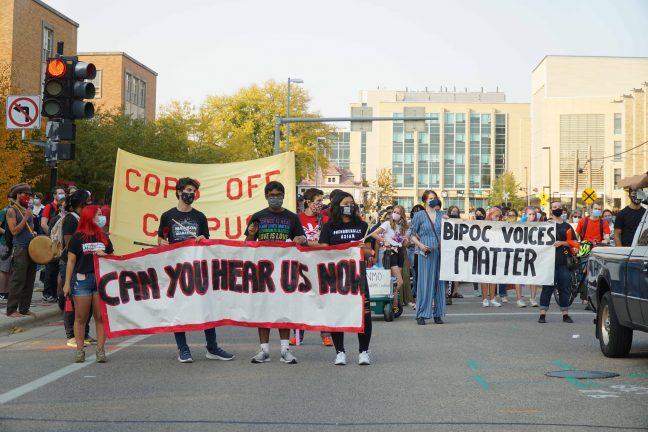Sixty-nine percent of Americans felt that one of the biggest contributors to the past summer’s protests for racial equality was ongoing tension between the police and Black Americans. Fifty-nine percent of Americans believed the protesting public was looking for a way to casually engage in criminal behavior.
This differing view of police intervention — which took the lives of 168 Black people during the first eight months of 2020 — was once debated once again on Jan. 6, as 8,000 Trump supporters stormed the capitol and overran 1400 police officers.
The intent of the attack was to harm both then-Vice President Mike Pence and Speaker of the U.S. House of Representatives Nancy Pelosi. The attackers were armed with bats, pepper spray, alcohol, zip ties and a variety of other possibly violent items.
The problem with racism in America is that while people of color find themselves forced into limited, incomplete narratives, white people have always had the freedom to craft how they are represented.
On the same day of the Capitol attack, Sen. Ted Cruz, R-Texas, tweeted, “Violence is always unacceptable. Even when passions run high.”
These so-called “passions” would have been labeled as terrorism from the start if those involved were not white.
At the beginning of August, Cruz told Fox News that he believed the summer’s Black Lives Matter protests were “organized terror attacks” intended to break down the government. Yet the word “terror” and “attack” left his vocabulary as the U.S. Capitol’s security crumbled in minutes.
Eugene Goodman, a Capitol police officer, was one of the only people who prevented the riot from entering the Senate Chamber. If they did enter, there may have been even more deaths.
There is clearly a racial double standard when it comes to the policing of protests. While this riot was hinted at and planned online, nothing was done to prevent it.
Some Capitol security officers fought the mob off with bravery, yet there were still several who treated the rioting mob with a kindness that was not just unprofessional, but unseen during the Black Lives Matter movement.
Social media has a tendency to bathe horrid events in humor, which is why so many Americans remember memes of how fancy deodorant locked behind containers at their local CVS had tighter security than the capitol. The severity of the attack only began to set in as more information was released about how it happened.
The storming of the U.S Capitol is not a partisan issue. Every single American should have been watching in fear. No matter where someone stands on the political spectrum, it is embarrassing and heartbreaking to see violent rioters put their feet up on desks where legislation is written. To watch America split on an attack that is so clearly wrong represents the true problem at hand — Trump’s legacy.
Many know Trump clearly incited the violence, but there is no solid reporting yet as to his role in delaying the National Guard from arriving at the scene. His involvement in encouraging the mobs paints a picture of immaturity and clear division that explains why America is still in a viral, racial and financial pandemic.
The pass that society continuously gives white politicians and white people is tiring. The storming of the capitol was a crime. It was an insurrection. The riot put our government in danger, and if a nation’s capital is so easily exposed to violence, then what is the implication for other cities?
The racial double standard illustrated by the handling of the capitol riots, unfortunately, exist within the daily lives of BIPOC Americans as well as on the Madison campus where multiple student orgs have created petitions demanding administration address these inequities.
UW needs to be honest. As a primarily white institution, the student body, school administration and local government must be held accountable for these racial disparities and double standards.
One important element of this work is education– UW professors should integrate discussions surrounding racial inequity into their curriculum to create a more informed campus community.
In our rapidly changing country, it is vital to listen to BIPOC leaders while unlearning the many biases that have been engrained within us.
Sonakshi Garr (garr2@wisc.edu) is a freshman majoring in pre-business.


